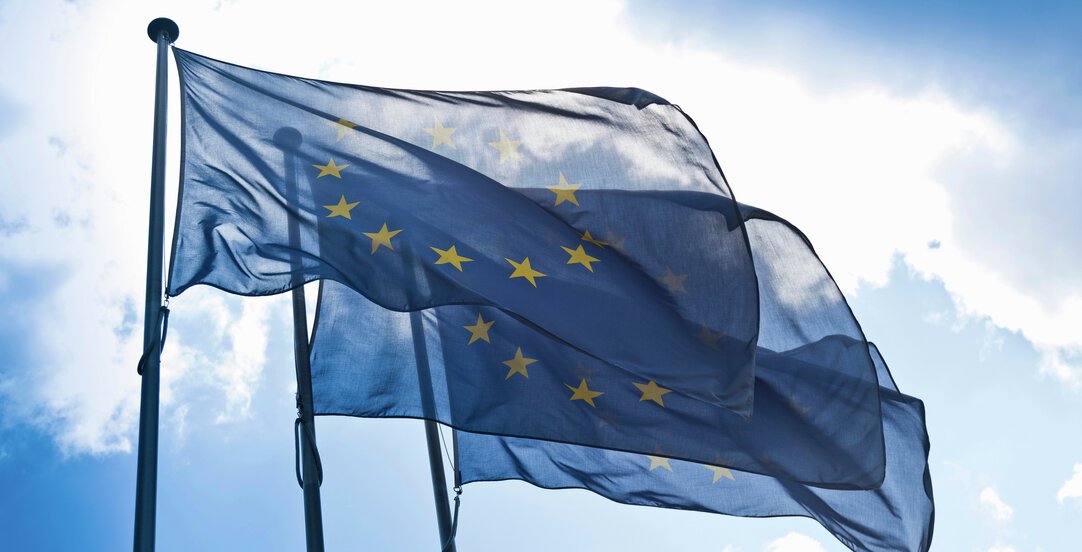EU Council and Legal Affairs Committee of the European Parliament approves amended draft of the Corporate Sustainability Due Diligence Directive

On 15 March 2024, the Committee of Permanent Representatives (COREPER) of the Council of the European Union (the "Council") surprisingly approved an amended draft of the Corporate Sustainability Due Diligence Directive (the "CS3D"). On 19 March, the amended draft of the CS3D was approved by the Legal Affairs Committee (JURI) of the European Parliament.
Lesetid 8 minutter
The approving vote was made after the Council previously had postponed voting on the CS3D several times following opposition from a number of EU member states. Although the scope of companies to which the CS3D applies has been substantially constricted, and the final draft needs approval by the European Parliament before passing into law, a significant step has been taken to adopt the CS3D before the European parliamentary elections in June 2024.
Several Norwegian companies will fall within the scope of the new directive, which could also give rise to amendments of the Norwegian Transparency Act, for instance by extending the focus of due diligence assessments to also cover environmental impacts.
Below, we will provide an overview of CSRD's background, the amended scope, the key obligations, the further legislative process in the EU, and how the CSRD may affect Norwegian companies.
Background
The CS3D builds on a proposal from the European Commission from 23 February 2022, forwarded in the wake of consistent calls from the European Parliament for a wider-reaching corporate accountability and mandatory due diligence legislation relating to human rights and environmental impacts. The Directive forms part of an extensive range of recently enacted and proposed EU legislation on sustainability and responsible business conduct, including the Deforestation Regulation (Regulation (EU) 2023/1115), the Conflict Minerals Regulation (Regulation (EU) 2017/821), and the proposed regulation prohibiting products made with forced labour (see original proposal and negotiating position). Moreover, the CS3D is intrinsically linked with the Corporate Sustainability Reporting Directive ("CSRD", Directive 2022/2464/EU), which entered into force on 5 January 2023. While the CS3D requires companies to conduct due diligence and assume responsibilities relating to human rights and environmental impacts, the CSRD mandates transparency regarding these requirements. On 15 March 2024, the same day that the Council approved the CS3D, the Norwegian government forwarded a proposition of changes to the Norwegian Accounting Act, to implement the CSRD into Norwegian law within the implementation deadline set by the EU, 5 July 2024.
On 14 December 2023, the European Parliament and the Council reached an informal agreement on the CS3D, as described in our newsletter from December 2023. The final draft was released on 30 January 2024, and the Council was originally scheduled to vote on its approval on 9 February 2024. However, several member states reportedly opposed the CS3D, and the vote was postponed several times. Until the COREPER meeting of 15 March 2024, it seemed unlikely that the Council would approve the CS3D in time for the Directive to be adopted before the European parliamentary elections in June, pointing towards renegotiation efforts between the newly formed European Parliament and the Council as the most probable scenario. Therefore, it came as a surprise to many when all member states in the COREPER voted in favour of an amended version of the CS3D.
Scope
In the draft approved by the Council and the European Parliament's Legal Affairs Committee, the scope has been significantly reduced compared to the Commission's proposition. More concretely:
- For EU companies to be in-scope, the thresholds have been raised from 500 to 1000 employees and the global turnover threshold was raised from exceeding 150 million euros to exceeding 450 million euros.
- The lower thresholds for companies operating in high-impact sectors have been removed, meaning that the same high thresholds will apply for companies in industries where human rights or environmental impacts are more likely.
- Non-EU companies are encompassed by the CS3D if they have a turnover of more than 450 million euros in the EU.
- Franchises with a turnover of more than 80 million euros are within the scope of the CS3D if at least 22.5 million was generated by royalties. For non-EU companies, these thresholds must be reached within the Union.
- Parent companies of groups that on a consolidated basis reach the abovementioned thresholds are also within the directive's scope.
The scope is significantly narrower than the scope of existing national due diligence laws in Europe, including the Norwegian Transparency Act. For instance, the Transparency Act applies to companies exceeding two of three thresholds including more than 50 employees and sales revenues exceeding 70 million NOK, the UK Modern Slavery Act applies to companies with a turnover exceeding 36 million GBP, while the German Supply Chain Due Diligence Act (Lieferkettensorgfaltspflichtengesetz) has no turnover thresholds, applying instead to companies with at least 1000 employees.
Estimates show that only about 0.05 % of European companies are encompassed by the reviewed scope, translating to around 30 % of the companies included by the proposed directive's original scope. Moreover, the obligations of the CS3D will reportedly be phased in, so that they apply to companies exceeding 5000 employees and 1500 million euros turnover three years after the directive's entry into force, to companies exceeding 3000 employees and 900 million euros after four years, and finally to companies exceeding 1000 employees and 450 million euros after five years.
Key obligations
Although the scope of the CS3D has been narrowed down, the key obligations imposed by the directive remain largely the same as in the draft agreement by the Council and the European Parliament.
The first main obligation is a duty to conduct risk-based human rights and environmental due diligence, including by:
- integrating due diligence into policies and risk management systems
- identifying and assessing actual and potential adverse impacts
- implementing measures to cease, prevent or mitigate adverse impacts
- monitoring the effectiveness of due diligence policies and measures
- engaging with stakeholders
- establishing and maintaining a notification mechanism and complaints procedure
- providing remediation to actual adverse impacts
- publicly communicating on due diligence
The duty to conduct due diligence builds on, similar to the Transparency Act, the risk-based method enshrined in international soft law standards such as the UN Guiding Principles on Business and Human Rights (UNGP) and the OECD Guidelines for Multinational Enterprises.
The draft directive also includes an annex listing relevant rights and prohibitions, with reference to relevant international instruments that have been ratified by the EU Member States. Moreover, the annex includes a list of relevant prohibitions and obligations included in international environmental instruments. Thus, the annex clarifies the meaning of adverse human rights and environmental impacts.
The second main obligation is a duty to adopt and effectuate a climate transition plan to ensure, through best efforts, that the company's business model and strategy are compatible with the transition to a sustainable economy and with the limiting of global warming to 1.5° C in line with the Paris Agreement. The transition plan shall contain
- time-bound targets related to climate change
- a description of decarbonisation levels identified, and key actions planned to reach the targets
- an explanation and quantification of relevant investments and funding
- a description of the role of administrative, management and supervisory bodies with regard to the plan
The duty to adopt and effectuate a climate transition plan has no parallel in the Norwegian Transparency Act, which does not include environmental impacts.
The European Sustainability Reporting Standards (ESRS) of the Corporate Sustainability Reporting Directive (CSRD), which extends to a broader spectrum of companies compared to the CS3D, mandate the disclosure of transition plans for climate change mitigation. These plans ensure that a company's strategies and business models align with the shift towards a sustainable economy and the goal of limiting global warming to 1.5° C as per the Paris Agreement. Companies without existing transition plans must specify if and when they intend to adopt one. Although not obligatory unless formulated, the absence of such plans may dissuade investor interest due to perceived financial risks. Essentially, a transition plan delineates how a company intends to thrive in a greener economy, showcasing its adaptability and strategic alignment.
Sanctions, responsibility and supervision
Failure to comply with the requirements of the CS3D may expose companies to several types of sanctions:
- Supervisory authorities may order companies to cease or abstain from infringing conduct, as well as to provide remediation.
- Supervisory authorities may adopt interim measures in case of imminent risk of severe and irreparable harm.
- Companies may be sanctioned with penalties of up to 5% of the company's net worldwide turnover.
- Companies may be subject to civil liability for damages caused by non-compliance with the due diligence obligations. In providing for civil liability, the CS3D goes further than the Transparency Act, which contains no similar provision.
Additionally, compliance with the obligations of the CS3D may be taken into account as part of the award criteria for public and concession contracts, and as environmental or social conditions in relation to the performance of such contracts.
Next legislative steps
Following the approval by the EU Council and the Legal Affairs Committee of the European Parliament, the directive will now proceed to a final plenary adoption vote by the European Parliament. A vote is expected in the Parliament's plenary session of 22-25 April 2024.
While the European Parliament is expected to adopt the draft directive approved by the Council, the volatile political process so far gives rise to some degree of uncertainty.
How will your business be affected?
The directive is likely to be adopted during the course of 2024. The CS3D will then need to be transposed into national law by the various Member States before companies are required to abide by it. The proposed directive has been marked as EEA relevant, and in Norway, alignments with the Transparency Act will likely be required before the directive is implemented into Norwegian law. However, as described above, the implementation of the CS3D will take course over several years, with the largest companies being covered by the obligations within three years after its entry into force, and the full scope only being applicable after five years.
While the high thresholds set forth by the Council mean that only the largest Norwegian companies will fall directly within the scope of the CS3D, Norway may nevertheless choose to give the directive effect for all companies currently covered by the Transparency Act. In the preparatory works of the Transparency Act, the Ministry of Children and Families envisaged an evaluation of the Transparency Act after a period of time following its entry into force, inter alia in light of the CS3D and the Deforestation Regulation. The Ministry highlighted the inclusion of environmental impacts in the Transparency Act's material scope as one possible outcome of the evaluation.
Companies that already conduct human rights due diligence in accordance with the Transparency Act and the OECD Guidelines for Multinational Enterprises will be well positioned to meet the requirements under the CS3D relating to human rights. However, companies may potentially have to extend their due diligence focus to also cover environmental impacts, as well as to adopt a plan to ensure that their business models align with the goal of restricting global warming to 1.5° C, upon the implementation of the CS3D into Norwegian law.
The legal framework in this area of law is expanding significantly, and becoming increasingly complex to navigate. For any questions regarding the current framework or the proposed changes, and how they may affect your business, our team of ESG and compliance experts is always ready to assist.
Our newsletters are provided as general information and do not constitute legal advice.



